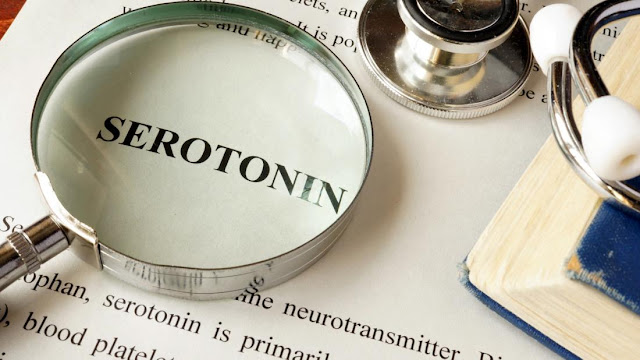 |
| A new study suggests that serotonin, which is the brain chemical commonly known as the 'happiness hormone,' may be key in driving Alzheimer's disease. |
It is not yet known what causes Alzheimer's disease, but researchers are hard at work trying to unravel the neurological, molecular, and genetic underpinnings of the disease.
One of the hypotheses put forth so far has been that the neurotransmitter serotonin plays a key role. In recent years, studies have accumulated evidence that people with Alzheimer's disease have less of this brain chemical, which is known to regulate mood, sleep, appetite, and sexual function, among other things.
Additionally, other studies have shown that a loss of the brain's monoaminergic neurons - which are those that modulate serotonin, among other neurotransmitters - is associated with an excessive buildup of amyloid plaque in the brain. This clumpy protein is a hallmark of Alzheimer's disease.
However, it is not known whether or not low serotonin levels are the cause or the effect of Alzheimer's disease.
New research carried out by scientists from the Johns Hopkins University School of Medicine in Baltimore, MD, confirms that the neurotransmitter serotonin does play a key role in Alzheimer's disease, and it suggests that the brain chemical may drive the illness rather than simply being its byproduct.
Studying serotonin transporters
Using positron emission tomography (PET) scans, Prof. Smith and colleagues examined the levels of serotonin in the brains of 56 participants. They were aged 66 years on average, and 45 percent of them were female.
More specifically, the researchers examined the behavior of the so-called serotonin reuptake transporters (SERT) in the brains of these participants.
Neurotransmitter transporters are the proteins found in the membrane of the neurons; they are responsible for transporting the neurotransmitters out of the synapses between brain cells and back into the nerve cell.
The researchers divided the participants into two groups of 28 participants each: the first group had symptoms of mild cognitive impairment (MCI) - which is often a precursor of Alzheimer's disease - as assessed by standard cognitive tests, and the second group consisted of healthy adults (the controls).
Lower SERT levels found in MCI patients
Using a radioactive carbon, the researchers were able to trace the presence and activity of SERT during the PET scans. Prof. Smith and team found that those with MCI had up to 38 percent less SERT than their cognitively healthy, age-matched counterparts.
Additionally, not one person with MCI was found to have higher levels of SERT than their healthy counterpart.
Furthermore, the researchers compared the results of the standardized cognitive tests with the results from the PET scans and found a proportional correlation.
For instance, those with MCI faired 37 percent worse in the verbal memory scores and had 18 percent lower levels of SERT compared with the cognitively healthy, age-matched counterparts.
From a clinical viewpoint, the findings imply that stopping the loss of serotonin, or substituting it with another neurotransmitter, could slow down or even completely halt the progression of the disease.
"Now that we have more evidence that serotonin is a chemical that appears [to be] affected early in cognitive decline, we suspect that increasing serotonin function in the brain could prevent memory loss from getting worse and slow disease progression."
Typically, for treating diseases such as depression - wherein serotonin levels need to be adjusted - doctors prescribe so-called selective serotonin reuptake inhibitors (SSRIs), which are drugs that block the neurotransmitter from being "reabsorbed" by neurons.
Prof. Smith notes, however, that SSRI treatment for Alzheimer's disease has not been proven successful. The reason for this, she ventures, might be that SSRIs need to bind to serotonin transporters in order to work, but in patients with Alzheimer's disease, it is precisely these transporters that are missing.
She therefore suggests that serotonin receptors - rather than transporters - might be a better therapeutic target.






